Browse Exhibits (6 total)
Art Education Imperatives Research: Video Time Capsules
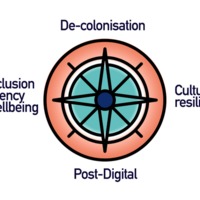
What were the images, text, sounds, voice threads that research partners wanted to be preserved for opening of the ‘New directions for sustainability’ time capsule in 2041?
Literature
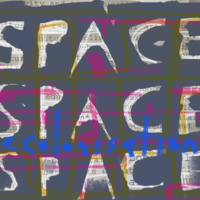
Critical Qualitative Inquiry methods link our creative practice and theory through the development of a scholarly data base in Zotero that is connected to this OMEKA site that includes a range of diverse, ethical, and equitable literatures.
Designed and develped to share the practice for educators across the sectors and global communities.
Critical qualitative inquiry is a socially just, global method of review that isethical and scholarly in its approach to diversity and interculturalism in scholarship.
As a digital ABER study, the artist-in-residence, with Jessica Laraine Williams and partnership with MDAP's Amanda Belton has supported the creation of a number of digital objects, multimedia visualisations from analysis of collected video and created digital mappings of the data sites across the UNITWIN network.
This methodological approach
- Offers the arts and educators global access to rich visual and digital data that exemplifypractices in arts ecologies for a COVID-normal era.
- Contributes to the field through methodological and educational findings that are ‘in’practice.
- Allows the team to examine the possibilities and affordances of ABER, digital methods, andcritical qualitative inquiry for a post-digital era.
The Zotero library can be found at Arts Education Imperatives
Project Methods: Placemaking and digital data sites for a sustainable arts education(s)
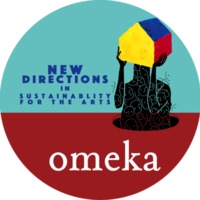
This 20/20 presentation called Placemaking and digital data sites for a sustainable arts education(s) was presented at "Conference 2021 - Creative CONVERGENCE Créative" - hosted by The Canadian Network for Arts & Learning.
In this presentation, Dr Kathryn Coleman, Amanda Belton, Neda Sajadi and Jessica Laraine Williams explore opportunities for arts based educational research and arts education praxis research using digital methods and feminist metho-pedagogies. We position how placemaking as a ‘New Materialist Theory of Pedagogy’ can be harnessed to make and know place, differently for the endemic. Our video presentation uses the same method of patching data traces as placestories that we invited our collaborators to embody and brings together artist-teachers, artist-researchers, data creatives to speculate what might be.
Project summary: Working collaboratively across the globe to consider Arts Education imperatives - new directions for sustainability

This presentation called Working collaboratively across the globe to consider Arts Education imperatives: new directions for sustainability was presented at "Conference 2021 - Creative CONVERGENCE Créative" - hosted by The Canadian Network for Arts & Learning.
In this presentation, A/Prof Neryl Jeanneret, A/Prof Mark Selkrig, Dr Emily Wilson and Dr Jenni Hillman discuss the establishment of an international research project that explores four identified imperatives that will shape and propel arts education during the foreseeable, uncertain times. The project is designed to build both collective and diverse understandings about these imperatives through a range of digital tools and platforms while also detailing lived experiences of the researchers in addressing arts education challenges. An overview of the project’s various digital strategies, tools and platforms will be revealed to show how we aim to set the groundwork to transform education practices in building a resilient, equitable and sustainable future.
3D interactive galleries: Mozilla Hubs
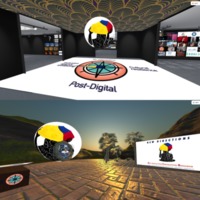
We present research outcomes of the Arts Education Imperatives project in these interactive, 3D virtual spaces hosted on Mozillla Hubs.The Enculturation Lobby houses a portal to the Indoor Gallery alongside a video introduction to the project and other research ephemera.
The Indoor Gallery displays image quilts comprised of core samples taken from project contributor's video research time capsules. These images then link back to the wider project metaverse as interactive elements. Users may access this platform via their web browser and are represented by an avatar once inside the Hubs room. A quick primer on how to navigate in the Hubs space here; an overview of user features available in Hubs here.
The Invitation
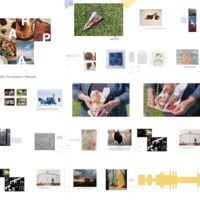
The goal of this Invitation was to help imagine and speculate on futures that are made possible by the research of the co-investigators education research. With a focus on futures that we should be striving for or futures that we should resist in arts education.
We invited all co-investigators to send us a pre-recorded 7-minute time capsule video that tells the story of their research that you worked on during the pandemic in 2021.

